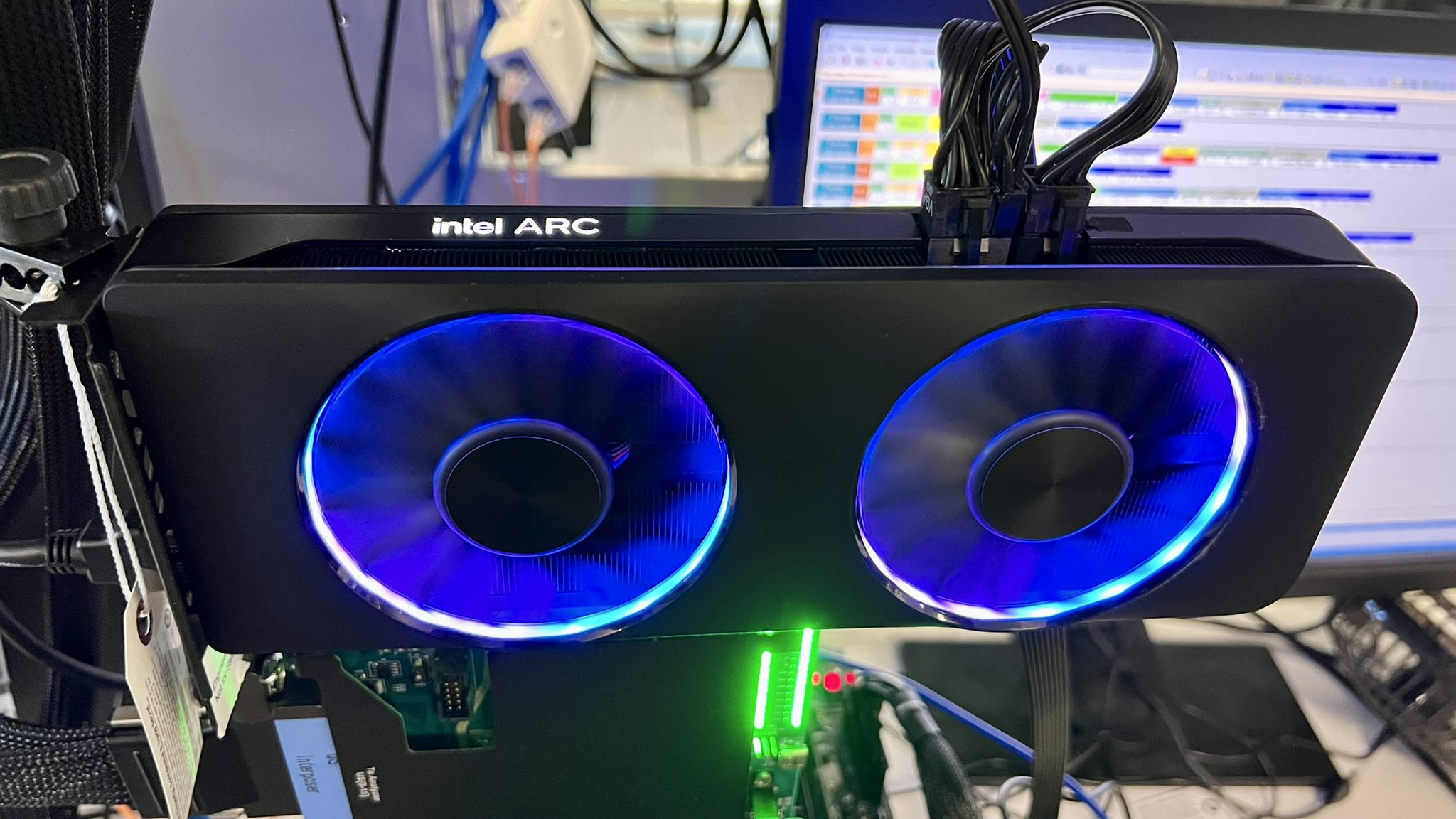Intel assures us its Arc graphics cards are here to stay
Raja Koduri makes it crystal clear that Arc GPUs aren’t being canceled

Sign up for breaking news, reviews, opinion, top tech deals, and more.
You are now subscribed
Your newsletter sign-up was successful
Intel’s discrete Arc GPUs have been the subject of a lot of speculation recently, including that the company might be shaping to cease its effort on this front – or at least cut them back substantially. However, this is not the case, a top Intel exec has made clear on Twitter.
If you missed this one at the weekend, YouTuber Moore’s Law is Dead presented the case that it sounds like the Arc project, which kicked off with first-gen Alchemist cards, is in the serious rumored trouble, with one source going as far to use the word “finished” regarding the future of the graphics cards.
Raja Koduri, chief architect of the graphics division at Intel, tweeted to express dismay at these rumors, and that they don’t help the team working hard to bring Arc graphics cards to market.
we are 🤷♂️ about these rumors as well. They don’t help the team working hard to bring these to market, they don’t help the pc graphics community..one must wonder, who do they help?..we are still in first gen and yes we had more obstacles than planned to ovecome, but we persisted…September 12, 2022
In a further tweet, Koduri pointed to a roadmap for Arc discrete shared in February 2022, and noted that Intel was continuing to carry out this strategy as planned. Namely pushing out Battlemage second-gen GPUs in 2023 to 2024, and then Celestial after that, which will have a new architecture.
Analysis: A lengthy Arc ahead of us, with any luck…
Funnily enough, the video Moore’s Law is Dead (MLID) uploaded at the weekend did comment on Koduri’s lack of mention of Arc gaming cards in recent times – and a focus instead on data center products – citing that as part of the reason to be doubtful around the future of these graphics cards. And the chief architect has certainly corrected that in no uncertain terms, also tweeting about the imminent launch of the top-end Arc A7 series GPUs, showing a card undergoing volume validation in a Toronto lab.
Intel is obviously fighting back against what it feels are unfair rumors here, and the message – previously conveyed by Intel’s Tom Petersen just a couple of weeks back – is that Arc discrete isn’t going anywhere. Moreover, Koduri makes it crystal clear that Intel’s plans and roadmap for the following two generations of GPUs after Alchemist have not been changed.
Of course, we always need to add our own skepticism not just to what MLID and the other hardware leakers out there are letting us know that they’re hearing from the grapevine, but also to what Intel is telling us. But to be fair, Team Blue has been pretty open and honest about the missteps with Alchemist – Petersen’s interviews of late have been very frank – and Koduri has taken a strong stance here in the face of the cancelation rumors. All of this lends more weight to the positive prospects for the future of Arc.
Sign up for breaking news, reviews, opinion, top tech deals, and more.
Ultimately, we don’t know how things are going to pan out, and part of the problem is the rocky launch we’ve seen with Alchemist thus far makes it easy to fall prey to pessimism. But nobody wants Arc discrete to fail – not us, or the gamers out there, or the hardware leakers. Everyone wants more choice in the GPU market, because in recent years, we’ve seen what a volatile place it can be, prone to suffering from nasty stock shortages followed by the inevitable price gouging.
A third player can only help ease those kinds of pressures, even if ultimately MLID turns out to be partially correct, and maybe only lower-end GPUs come through from Intel. Even that would still be a huge plus point, as typically, the budget GPU market is where Nvidia in particular ends up playing a weaker hand.
We’re certainly keeping our fingers firmly crossed for the future of Arc GPUs, and that we will indeed see not just Celestial, but Druid and beyond – and the latest noises from Intel make us feel more hopeful than we did at the weekend.
Darren is a freelancer writing news and features for TechRadar (and occasionally T3) across a broad range of computing topics including CPUs, GPUs, various other hardware, VPNs, antivirus and more. He has written about tech for the best part of three decades, and writes books in his spare time (his debut novel - 'I Know What You Did Last Supper' - was published by Hachette UK in 2013).